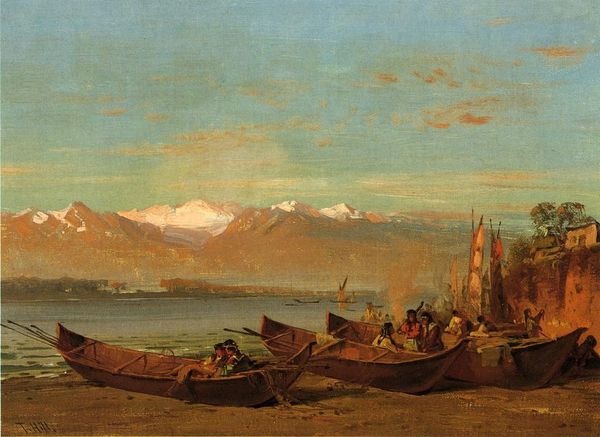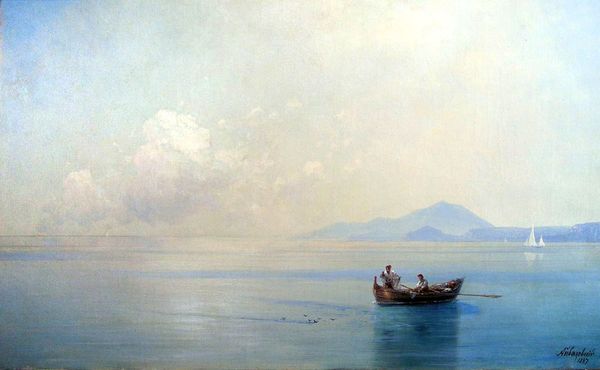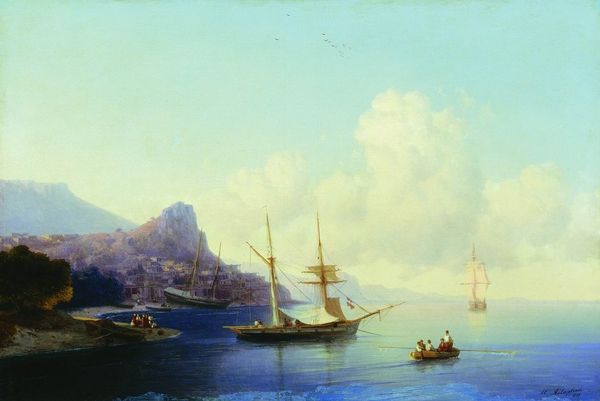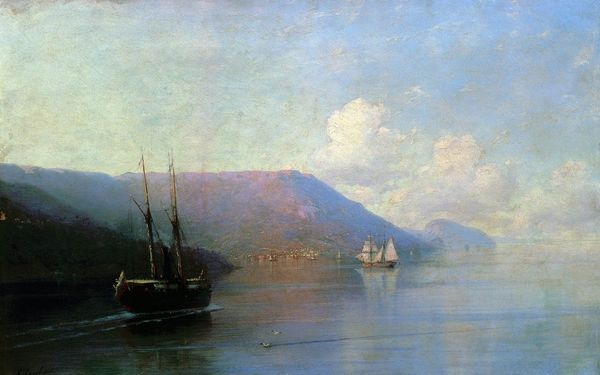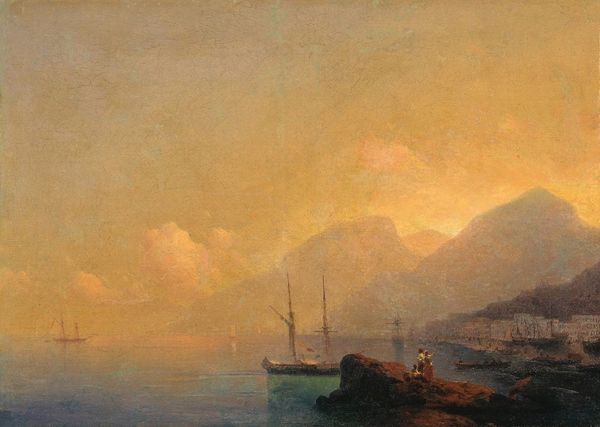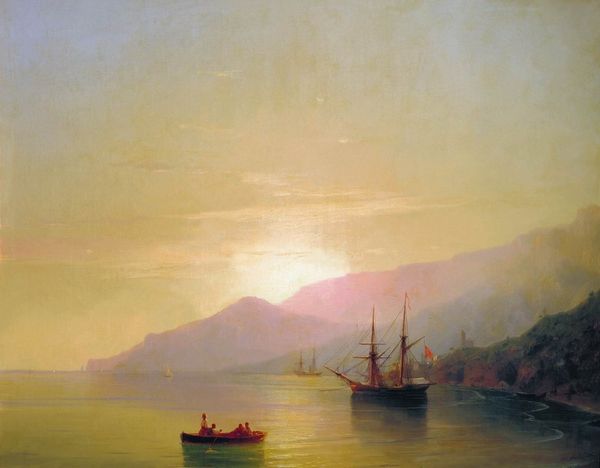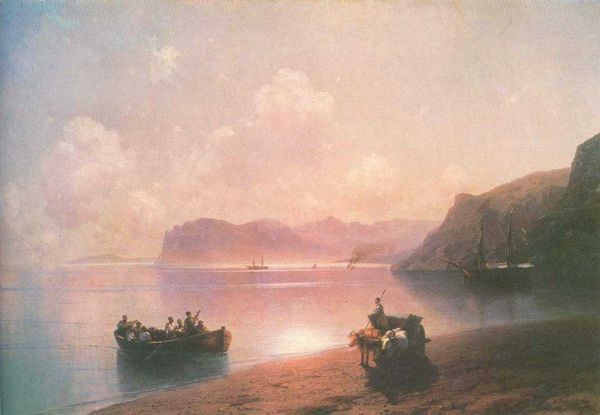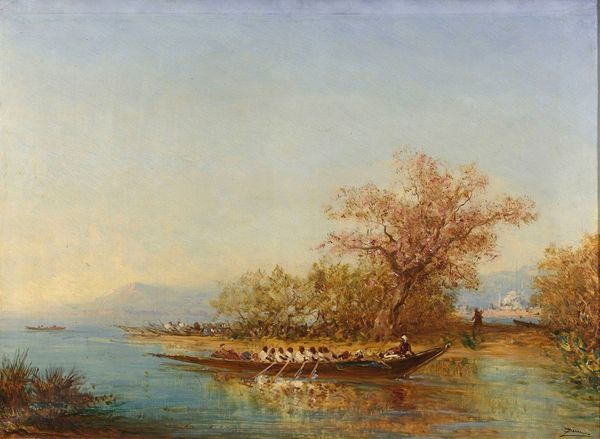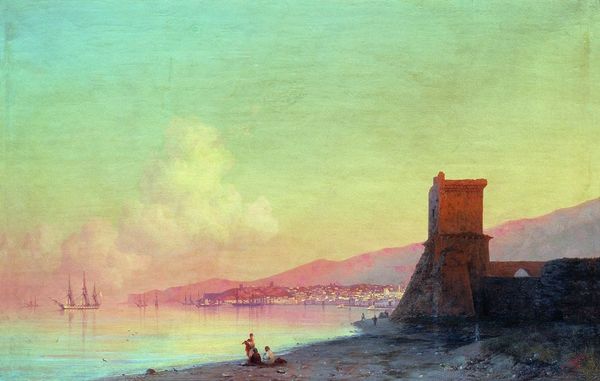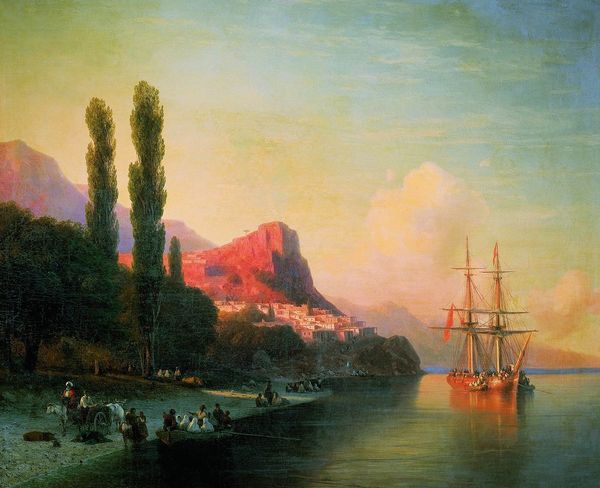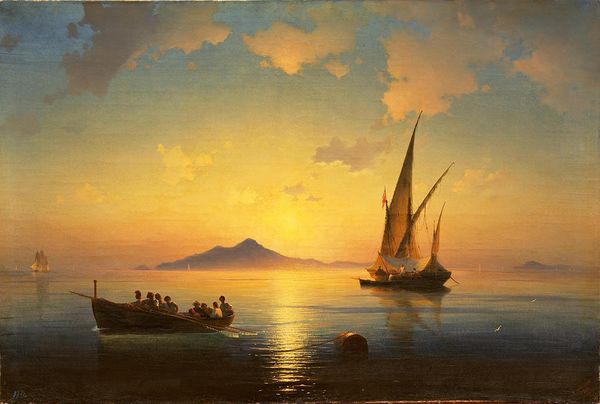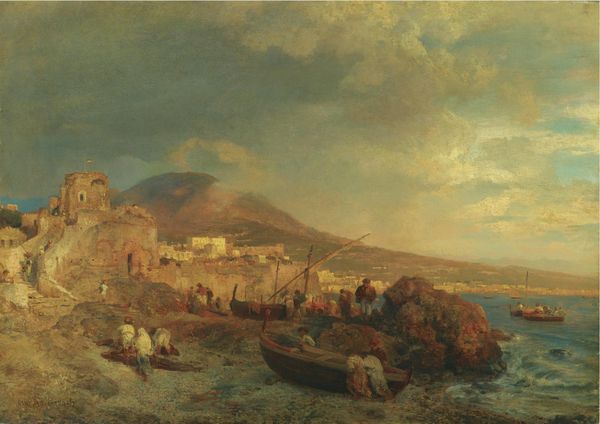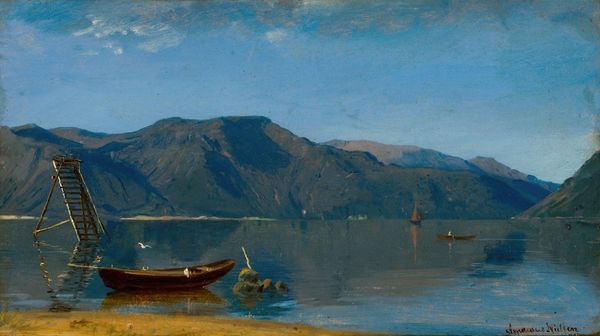
Copyright: Public domain
Editor: Aivazovsky’s 1886 watercolor, "The Wedding of the Poet in Ancient Greece," has such a dreamlike quality to it. The scene is serene, almost idyllic. What do you see in this piece from your perspective? Curator: I see Aivazovsky engaging with a very specific type of 19th-century Hellenism. Consider the time: this work was created when European intellectuals and artists were actively constructing an ideal of ancient Greece, one often divorced from historical realities. It speaks volumes that the artist titles it, “The Wedding of the Poet.” Who gets to represent “ancient Greece”? Who are the gatekeepers to this visual and intellectual space? Editor: So, the painting's title directs our attention to the role and importance of poetry during this era? Curator: Precisely. By emphasizing the poet’s wedding, Aivazovsky is making a statement about the cultural values he wishes to associate with this imagined Greece. Romanticism, especially in its nationalist forms, loved idealizing historical figures, especially artists. Notice the placement of the boat in relation to the classical architecture visible on the coast. Does this positioning, framing, communicate an intended cultural hierarchy, maybe? Editor: I guess it puts them together, though there is the whole expanse of water as a separator, and the boat, I now notice, has the elevated sculptural head of a swan... that also speaks to Greek art doesn't it? Curator: Exactly! Now, if we consider the role of institutions at the time... think about who was commissioning and buying art. Museums were also gaining prominence as public educators, displaying carefully selected historical narratives. Art, therefore, served a purpose in constructing these national and cultural identities. Editor: So, this painting becomes part of a much larger conversation about cultural identity and how the past is presented? Curator: Yes! It is a seemingly innocent landscape, but loaded with social and historical meaning that influenced perceptions about not just Ancient Greece, but Russia’s place among European powers. Editor: I never considered the political dimension of something so… tranquil! That’s given me a lot to consider.
Comments
No comments
Be the first to comment and join the conversation on the ultimate creative platform.
